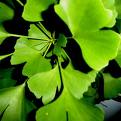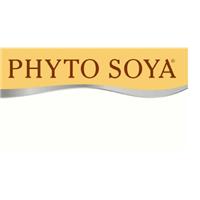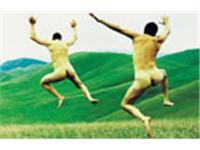
A traditional Chinese herbal medicine consisting of five herbs may benefit people with eczema, new research in the British Journal of Dermatology reveals.
Scientists at the Chinese University of Hong Kong evaluated the effects of the Pentaherbs brand formulation on patients aged between five and 21 with atopic eczema, the most common type of the disease which affects at least one in 10 children.
The Pentaherbs formulation capsules contain extracts of five raw herbs based on a widely used ancestral Chinese concoction – Flos lonicerae (Japanese honeysuckle), Herba menthae (peppermint), Cortex moutan (root bark of peony tree), Atractylodes Rhizome (underground stem of the atractylodes herb) and Cortex phellodendri (Amur cork-tree bark).
The first study was a clinical trial of 85 patients divided into a control group receiving a placebo, and a group taking the pentaherbs formulation. Using a questionnaire index that measures how much a skin problem affects a patient, the scientists found that the quality of life improved by a third in the group taking the herbs, compared to no improvement in the placebo-treated group.
The researchers also found that the herbal remedy reduced patients needs for the conventional treatment of topical steroids, with the duration of use reduced by an average of four days per month in the herbal group, compared to one day per month in the placebo group.
The team went on to explore the clinical effects of pentaherbs on the immune system. This is because people with eczema have been found to have higher blood levels of certain cytokines, a group of proteins and peptides that have a pivotal role in the immune system and which trigger inflammation in eczema.
The herbs reduced the expressions of four proteins and cytokines thought to have inflammatory effects linked with eczema.* This was confirmed in tests done both by adding an extract of the pentaherbs formulation to blood cells in a test tube (in vitro testing), and by testing the blood of 28 children taking the supplements (in vivo testing).
Study co author Dr Ting-fan Leung said: “Our recent clinical trial showed that Pentaherbs formulation reduced topical corticosteroid usage and improved quality of life in children with moderate to severe atopic eczema. Our latest study further clarifies this by showing that the herbs suppress the production of atopic eczema-related inflammatory mediators. Further studies are needed to explore this in more depth; however this is an interesting first step.
Caution needs to be exercised when using Chinese herbal medicines and patients should consult their GP before doing so. Like any supplement they can interact/interfere with prescribed drugs or a current medical condition.
Herba menthae (peppermint), one of the ingredients in the Pentaherbs formulationcan have a number of adverse effects, for example it can induce biliary colic in patients with existing bile stones, may worsen heartburn and cause a burning sensation in the mouth. The application of peppermint oil to the face of infants and children has caused narrowing of the tubes or airways of the lung (bronchospasm), swelling and spasm of the opening to the breathing tract (laryngeal oedema and spasm), both of which are potentially life-threatening complications.
These facts, other contra-indications and more are revealed in a new book raditional Herbal Medicines – A Guide To Their Safer Use
Co author Dr Lakshman Karalliedde MB BS DA FRCA, consultant, Chemical Hazards and Poisons Division (London), Health Protection Agency, says: 밢ne of the key reasons for the increased use of traditional herbal medicines in developed countries is the generally accepted perception that 몁atural?products are safe. They have stood the test of time and do not carry the risks inherent in newly developed conventional medicines.
There is not enough awareness that the ingredients that make traditional medicines effective could also be potentially capable of causing serious illness such as allergy, liver or kidney malfunction, blindness, cancer or even death.
Herbal medicines should therefore be used with the same degree of caution as conventional medicines, but this is difficult given the lack of information available about effectiveness, optimum dose or adverse effects.
The problem is that while the toxic profiles of conventional medicines have been extensively documented and publicised, the harmful effects of herbal medicines either taken on their own or in combination with conventional medicines are not well enough known. According to a National Institute of Medical Herbalists survey, 96% of qualified medical herbalists believed that conventional doctors do not know enough about herbs to give their patients advice. And if GPs are relatively in the dark, what hope is there for members of the general public.
It was with this in mind and the growing, urgent need for more information to be made available to the public ?that a group of toxicology experts got together to co-author Traditional Herbal Medicines namely Dr Lakshman Karalliedde, who spent 10 years at the MTU and is now a toxicologist with the Chemical Hazards and Poisons Division of the Health Protection Agency; Debbie Shaw, who heads the MTU Chinese Medicine Advisory Service; and Indika Gawarammana, former registrar at the MTU. They have combined their significant knowledge of traditional medicines to produce a comprehensive herbal compendium covering traditional herbal remedies from around the world, describing their sources, known effects and side effects, dosages, interactions and ?most importantly precautions. It’s a must for anyone involved in prescribing either conventional or traditional herbal medicines as well as the growing number of people who are taking them.
Traditional Herbal Medicines: A Guide To Their Safer Use is published by Hammersmith Press, price £9.99.
Study details: British Journal of Dermatology, publication date March 2008, in vitro and clinical immunomodulatory effects of a novel Pentaherbs concoction for atopic eczema T.F. Leung, K.Y. Wong, C.K. Wong*, K.P. Fung C.W.K. Lam*, T.F. Fok, P.C. Leung K.L.E. Hon; Departments of Paediatrics and Chemical Pathology*, and Institute of Chinese Medicine. The Chinese University of Hong Kong, Prince of Wales Hospital, Shatin, Hong Kong. DOI 10.1111/J.1365-2133.2008.08502.X
![FB-Moroccan-Chicken-w-Tomato-Dressing_p [640x480].jpg](https://www.elixirnews.com/assets_c/2010/09/FB-Moroccan-Chicken-w-Tomato-Dressing_p [640x480]-thumb-480x639-220.jpg) Serves 4
Serves 4 





